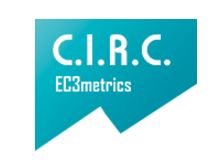Authors
Abstract
Abstract: It was investigated regarding the dilemmas and convergences between parents and children, in relation to the emotional ties established by the youth. We worked with two focus groups of young people aged 14 to 18 and their parents: a group in the urban area and another in the suburbs. Parents, from their perspective of adults, tend to disqualify and negatively connote youth emotional relationships; assuming the engagement of their children as an informal relationship, as its objective is not to procreate, which is paradoxical as that is their greatest fear. Meanwhile the adolescents define their dating relationships as a serious commitment, built with maturity, responsibility and loyalty. The vision of the parents, especially in the suburban area, is characteristic to the beliefs of the patriarch and traditional culture. The findings suggest little open and fluid discussion in regard to the topic; adults are more defined from their youth experiences and remember their own processes. This causes more fear to the actual times and generates a greater distance from their children.
The results are an invitation for create more spaces for the parents and children to meet, in order to encourage reflection, renewal of perceptions and a more democratic decision making. This all to build healthy emotional experiences for the youth and their families.
Keywords
References
Anderson, H. d Goolishian, H. (1998). Los sistemas humanos como sistemas lingüísticos: implicaciones para la teoría clínica y la terapia familiar. Revista de Psicoterapia, 2 (6), 92-97.
Barnhill, L.yand Longo, D. (1978). Fixation and regression in the family life cycle. Family Process, 17, 469-478.
Bisquerra, l. (2008). Educación para la ciudadanía y convivencia. El enfoque de la educación emocional. Madrid, España: Wolters Kluwer
Bowlby, n. (2009). Una base segura. Aplicaciones clínicas de una teoría del apego. Buenos Aires, Argentina: Paioós
Buckley, r. (1976). Socioloiia e teoria dei sistema. Torino, Italia: Rosenberg y Sellier
Cachia, a. (2008). Los sitios de creación de redes. Telos: Cuadernos de comunicación e innovación, 76, 69- 84.
Carter, B.yand McGoldrick, M. (1989). The Changing Family Life Cycle.IE: The Changing Family Life Cycle. A framework for Family Therapy, Boston, USA: Allyn and Bacon
Castellazzio i. (2008). Il test del disegno della familia. Roma, Italia: LAS
Costa,aL.a Perlo, C. y de la Riesta, R. (2008). Herramientas para la implementación del proceso de diálogo en las organizaciones.lInvenio, 11 (21), 115-128.
Escudero, n. (2011). Adolescentes y familias en conflicto: terapia familiar centrada en alianza terapéutica. o La Coruñ , Españ : Universidad de la Coruña: Fundación Meñino.
Estupiñáa, J. y Hernándea, A. (1992). Marco conceptual para el estudio de la familia desde una perspectiva sistémica. Aportes a la psicologí., 1 (1), 5-22
Gambini, o. (2007). Psicologia della famiglia. L’approccio sistemico relazionale. Milano, Italia: Franco Angeli.
Gambini, o. (2011). Adolescenti e famiglia affettiva. Percorsi d’emancipazione. Milano, Italia: Franco Angeli.
Haley, y. (1976). Terapie non comuni. Tecniche ipnotiche e terapia della familia. Roma, Italia: Astrolabio.
Havighurst, t. (1962). Psicología social de la adolescencia. Washington, USA: Unión Panamericana.
Lo Coco, A. o Pace, U. (2009). L’autonomia emotiva in adolescenza. Bologna, Italia: Mulino.
Martínez, J. y Fuertes,nA. (1999). Factores personales, familiares y relacionales implicados en la estabilidad de relaciones de pareja adolescentes. Infancia y Aprendizaje, 88, 85-105.
Martínez, ;., Fuertes, n., Orgaz,aB., Vicaria, I. y Gonaález,aE. (2014). Vínculos afectivos en la infancia y calidad de vida en las relaciones de pareja de jóvenes adultos: el efecto mediador del apego actual. Anales de Psicología, 30 (1), 211-220
Pére ,lM.; Torrea, A. y Velasco, L. (2006). Sociedad, violencia y mujer II. Retos para abordar un cambio social. Salamanca, España: Amarú Ediciones.
Pittman, k. (1995). Momentos decisivos. Tratamiento de familias en situaciones de crisis. Buenos Aires, Argentina: Paioós.
Rey-Anacona, o. (2009). Maltrato de tipo físico, psicológico, emocional, sexual y económico en el noviazgo: un estudio exploratori . Acta Colombiana de Psicología, 12 (2), 27-36.
Ric,, p. (1997). Desarrollo humano. Estudio del ciclo vital. Maine, USA: Prentice Hall.
Roca, i. (2011). Amores glocales y noviazgos trasnacionales. La búsqueda virtual de pareja mixta por parte de hombres españoles. Revista de Antropología Social, 20, 263-292
Ruiz Olabuénaga, o. (2012). Metodología de la investigación cualitativa. Bilbao, España: Publicaciones de la Universidad de Deusto.
Sabatelli, R.yana Mazor, A. (1985). Differentiation, individuation, and identity formation: The integration of family system and individual developmental perspectives. Adolescence, 20 (79), 619- 633.
Sánchea, J. y Oviedo,aL. (2005). Amor.Com. Vínculos de pareja portInternet. Revista Intercontinental de Psicología y Educación, 7 (2), 43-56.
Sánchez, ;., Gutiérrez, M., Herrera, N., Ballesteros, M., Izzedin, R. y Gómez, A. (2011). Representaciones sociales del noviazgo, en adolescentes escolarizados de estratos bajo, medio y alto, en Bogotá. Salud Pública, 13 (1), 79-88
Sandoval, s. (2002). Investigación cualitativa. Bogotá, Colombia: ICFE--ARFO Editores e Impresores Ltda.
Sroufe, n. (2000). Lo sviluppo delle emozioni: i primi anni di vita. Milano, Italia: Raffaello Cortina
Sroufe, A. and Fleeson, J. (1988). The coherence of family relationships. En R.A. Hinde and J. Stevenson-Hinde sEd .), Relationships within families: Mutual influence, (27-47). Oxford, USA: Oxford University Pres7.
Sternberg, t. (2000). La experiencia del amor. Barcelona, España: Paidós.
Valles, l. (1997). Técnicas cualitativas de intervenciónlsocial:nreflexión, metodológica y práctica profesional.
Madrid, España: Síntesis.
Vázquez, C. y Hervás, G. (2008). Psicología positiva aplicada. Bilbao, España: Desclee de Brower.
White, l. (1991). La externalización del problema y la reescritura de vidas y relaciones. Cuadernos de Terapia Familiar, 18, 31-59

 PDF (Español)
PDF (Español)
 FLIP
FLIP




















